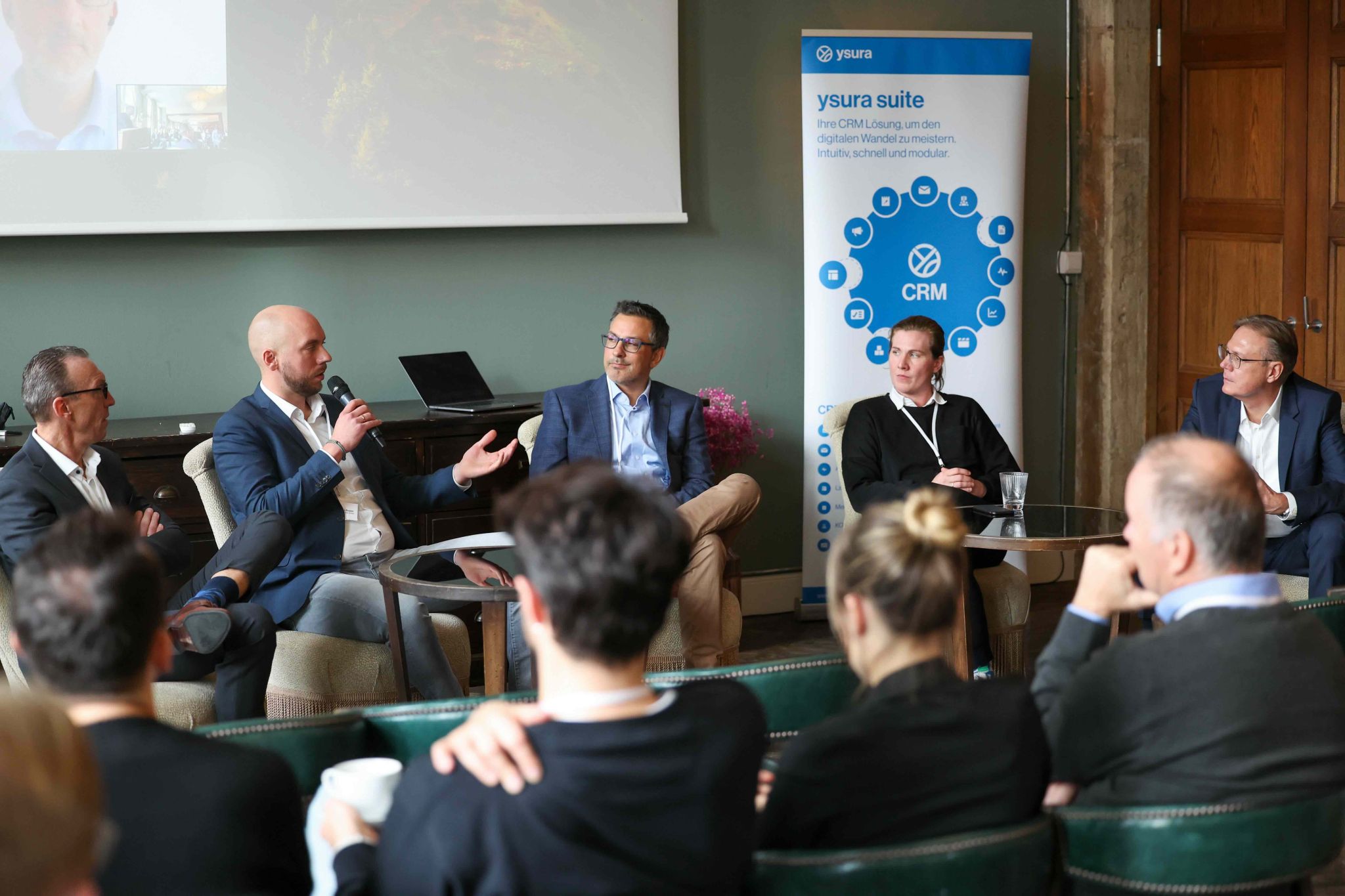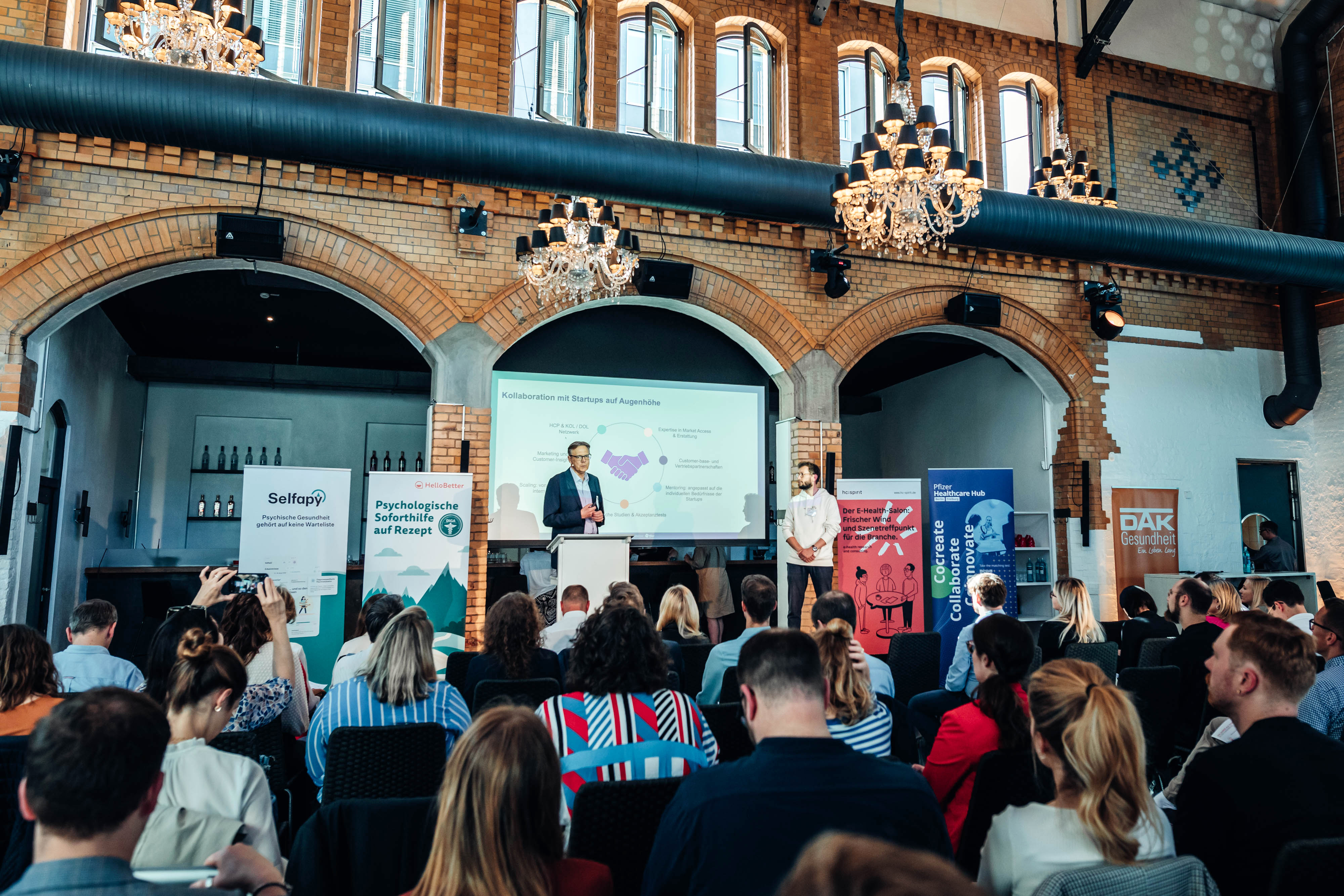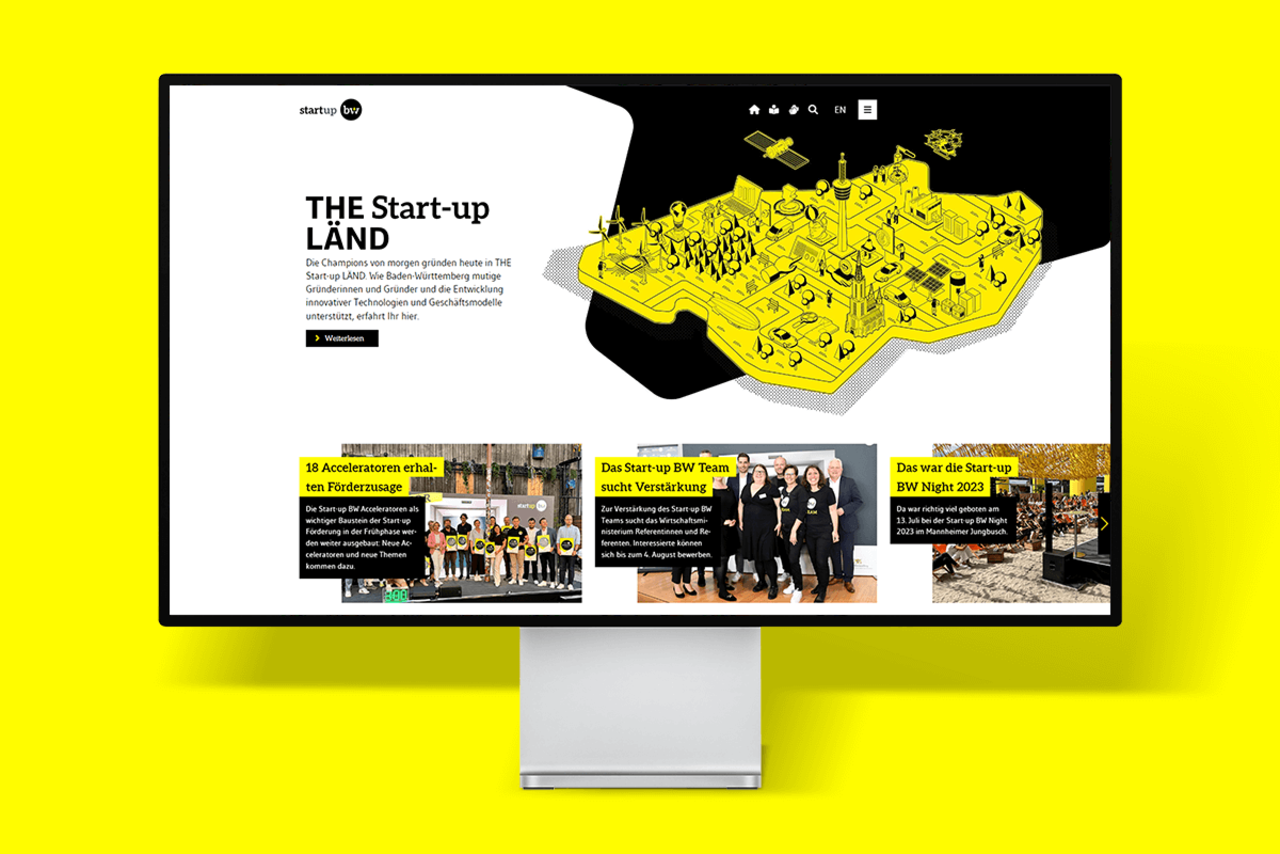Trinational HealthTech Days #4: The Upper Rhine, a fantastic place to innovate in life science!
Closer collaboration in the health technology sector by connecting the innovation ecosystems from France, Germany and Switzerland – that is the goal of the fourth edition of the Trinational Health Tech Days, which took place in Strasbourg at the end of November. With keynotes, panel discussions, workshops and one-on-one meetings between startups and investors and corporates, the cross-border dialogue was consolidated and promising collaborations were initiated.
"The potential (of the Baden region) is enormous, we have 65,000 employees in the health sector, we have the third largest university hospital and we have Fraunhofer Institutes. But we are far too little seen as a health region – we can strengthen that together with the tri-national partners , expand and make our region visible, said Mailaika Lauk. Senior Consultant at BadenCampus about the importance of the event for the region as a health location. The BadenCampus was next to the Innovation Office der Universität Basel, the Life Science Accelerator Baden-Württemberg and Quest for Health one of the organizers of the two-day innovation exchange with over 180 participants.
The Trinational Health Tech Days should not only ensure more visibility and cooperation in the tri-border area, but also give founders and entrepreneurs the opportunity to get in touch with funds, venture capitalists and companies and provide insights into how companies work with startups .
Pfizer at the Trinational Health Tech Days 2023
At the panel "For digital health startups: Similarities and differences between French, German and Swiss: How to DIGA?" Thorsten Mintel, Director of Strategic Innovation at Pfizer, gave insights into corporate-startup collaboration: Using the example of the collaboration with Selfapy, he spoke about Pfizer's experiences with DiGAs. Also there were Peter Hartung, Head of BU Consulting at Seleon GmbH; Mayella Favre, CEO & Founder of F+R Services GmbH; Axel Meiling, Digital Oxygen. Bodo Brückner from the Life Science Accelerator Baden-Württemberg and Malaika Lauk from Baden Campus moderated the panel.
In the subsequent discussions, Peter Neske expanded these insights to include his perspective as Innovation Lead of the Pfizer Healthcare Hub, which initiates collaborations between startups, spin-offs and tech companies and Pfizer.
"For us, visibility in the startup scene is very important. We want to offer health solutions in the digital area together with startups that improve the health of patients in the indications in which we are familiar, but also in production and logistics", said Thorsten Mintel about the meaning of the Trinational Health Tech Days for Pfizer.
Take-Aways of the event
The event showed that all three countries are working on the topic of DiGA, but under very different conditions. In a trinational comparison, the chances of successfully establishing yourself on the market are currently highest in Germany. In addition, the cross-border exchange has proven to be very valuable for the participants. The common goal of developing into one of the leading life science clusters worldwide has been defined.
We are already looking forward to the next pit stop on this ambitious path: the Health Tech Days 2024, which will then take place in Germany!

Pharma & DiGA: Panel discussion in Berlin
On November 9 an exciting event took place at SOHO House in Berlin: the exclusive Digital Health Application (DiGA) panel discussion, organized by the ysura team. The event attracted numerous interested parties and offered, in addition to information, exciting discussions and networking opportunities.
The focus was on the discussion of the topic “Traditional Pharma Model vs. Modern DiGA Strategies - Challenges in HCP Outreach for DiGAs”. The event was initiated with a keynote speech titled “DTx Partnerships between Start-up and Pharma - Learnings and Experiences” by Thorsten Mintel, Director Strategic Innovation at Pfizer. This was followed by an open discussion round where various aspects were highlighted:
- Current Status and Challenges in HCP Engagement by DiGAs: It was discussed where DiGAs currently stand, the hurdles they face in their implementation, and how the interaction with HPCs can be improved.
- Comparison between DiGAs and Traditional Pharma: The discussion also focused on the advantages and disadvantages of DiGAs compared to the traditional pharmaceutical industry.
- Increasing the Acceptance of DiGAs: Experts discussed ways to enhance the acceptance of DiGAs.
Among the experts sharing their insights were Dr. Hanne Horvath, founder of Hello Better, and Michael Erdmann, Director HCP Health at Kaia Health. Additionally, Marcus Bergler, DiGA Go to Market Expert, and Nicholas Rosen, Founder & CEO of Exaris Solutions, were part of the discussion. Joachim Hirt, Commercial Director at Inizio Engage, and Thorsten Mintel, Director Strategic Innovation at Pfizer also contributed valuable expertise and together brought diverse perspectives into the discussion.
The experts emphasized, among other things, the importance of creating awareness among physicians about DiGAs and explained that many physicians are not familiar with the prescription process and use of DiGAs. Furthermore, the importance of targeted targeting and segmentation for the success of DiGAs was highlighted, including an omnichannel approach. In addition, they emphasized that direct sales are also a crucial success factor for the marketing of DiGAs.
The event provided a platform for the exchange and discussion of key topics related to DiGAs. Participants had the opportunity to establish valuable contacts and engage in discussions with leading experts. The event offered valuable insights into current challenges and potential solutions to shape the future of DiGAs. The topics of awareness, targeting, and segmentation continue to be of great importance for shaping the future of DiGAs.
Ysura panel discussion in Berlin
E-Health-Salon in Berlin: innovative patient solutions
On September 21, Healthcare Hub was once again a proud sponsor and speaker at hc:spirit's E-Health Salon. The event brought together 25 speakers from the health insurance, startup, and pharma sectors to highlight a wide range of topics related to customer journeys in healthcare. A highlight of the event was the speech by Dr. Evelyn Kade-Lamprecht, who offered great insights into patient journeys and explained what patients expect from their health insurers.
In collaboration with Selfapy, our cooperation partner in DiGA for chronic pain, the Healthcare Hub presented the topic of DiGA and highlighted what is important in cooperations and where there is potential for improvement in the still fairly new market. It became clear that only if manufacturers and health insurers can establish smooth and customer-friendly processes DiGA can make a significant contribution to the health of the population.
The conclusion of the E-Health Salon on topics such as the current status quo, licensing and cooperation opportunities in the DiGA area was clear: Although success stories such as Selfapy have already been written, the German healthcare system still has many lessons to learn. The processes around DiGA must be further optimized in order to make the digital applications available to patients more quickly.
The E-Health Salon not only offered the opportunity to gather important insights, but also enabled the establishment of new contacts, interesting discussions and the exchange of valuable information. This once again made the event a highlight for us.
We are eagerly looking forward to the next event next year and are looking forward to sharing more exciting developments and insights in healthcare.
Read more about the E-Health-Salon 2023
Information portal for founders in "THE Start-up LÄND"
A helpful guide for founders in the consulting jungle: On startupbw.de, startups find information about relevant and suitable support services. The recently launched online portal provides information about all offers for startups and founders in Baden-Württemberg – such as contact points, consulting and qualification offers or ecosystems, events and competitions.
Venture capital, public funding programs, grants, guarantees and participations – which financing options are suitable for my project? Who can advise on life science startups? And which competitions are suitable for my startup? Anyone who starts a business has many and specific questions. The online portal startupbw.de provides the right answers.
The funding offered by the Baden-Württemberg state government for the development of innovative technologies and business models has been continuously expanded and further developed in recent years. The programs address different target groups in all phases of development: from the pre-startup phase to the growth phase to the internationalization of a company. In order to make it easier for founders to find suitable support services, startupbw.de has evolved from a campaign page to an information and communication platform.
Pfizer Healthcare Hub at startupbw
As an active player in the Freiburg startup ecosystem and a B2B partner of Start-up BW, the Pfizer Healthcare Hub is represented on the online portal in many ways – for example, in connection with the BadenCampus Startup Lab or as a partner of the Smart Green Accelerator's GROW program.
"With the online portal, we are making a contribution to communicating the extensive range of funding offers even better and establishing contact opportunities between the founders and the numerous players involved in regional startup and startup funding," says Dr. Nicole Hoffmeister-Kraut, Minister of Economic Affairs, Labour and Tourism.
Click here to visit https://www.startupbw.de/